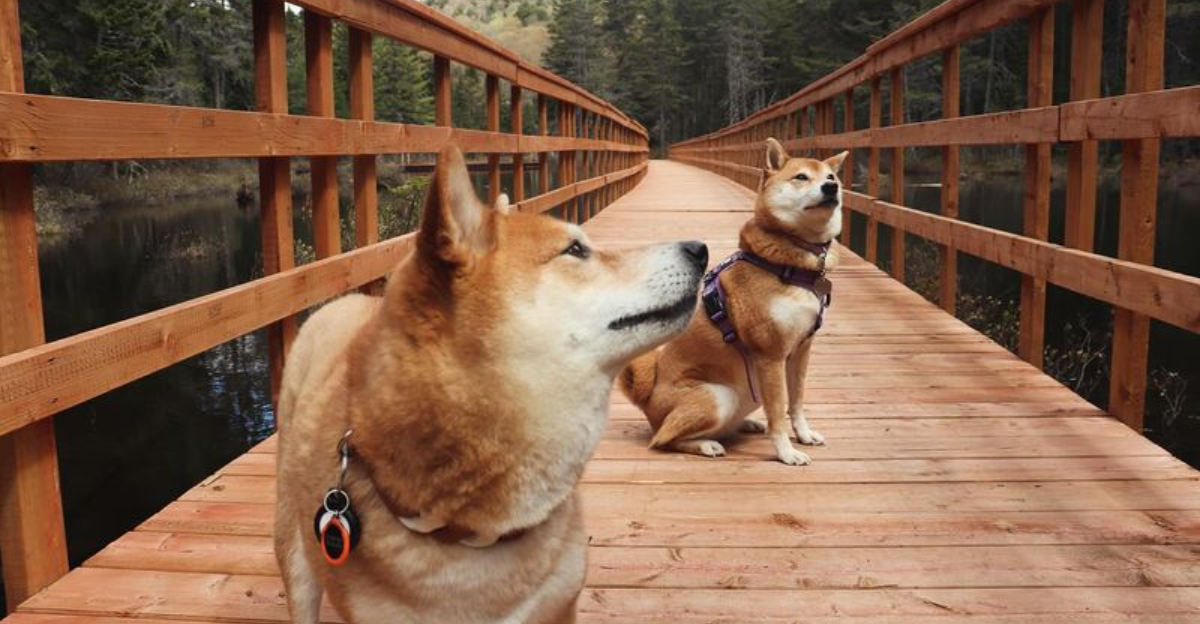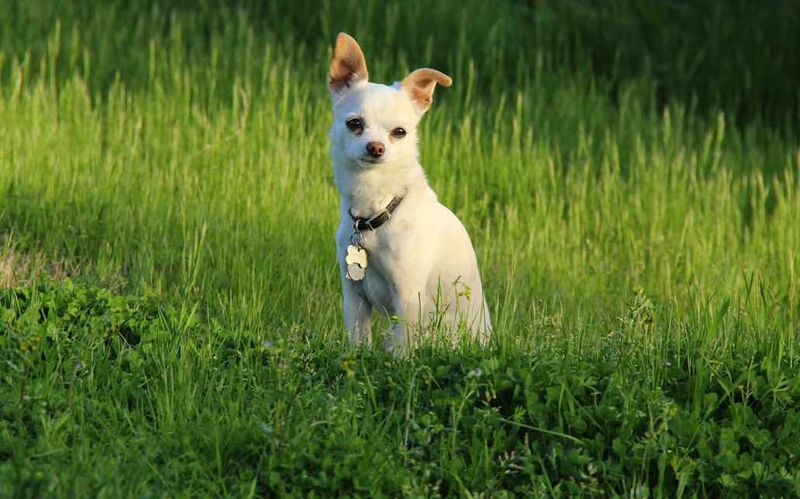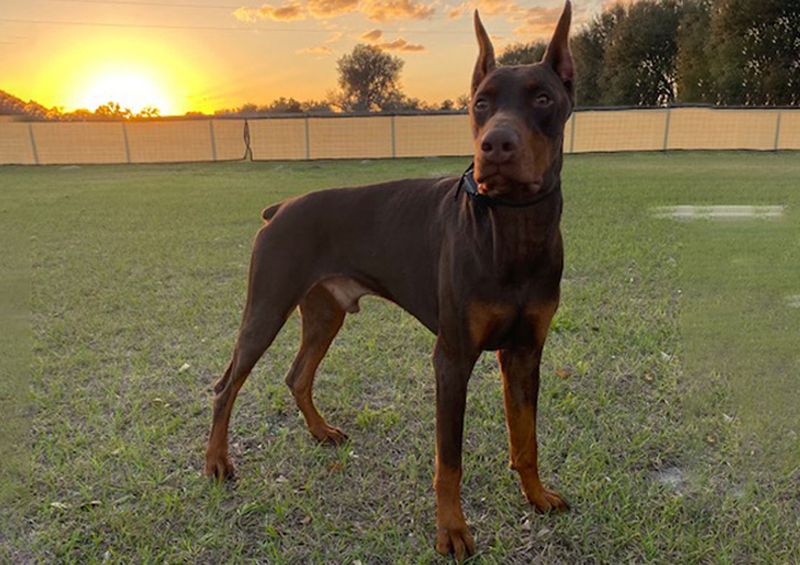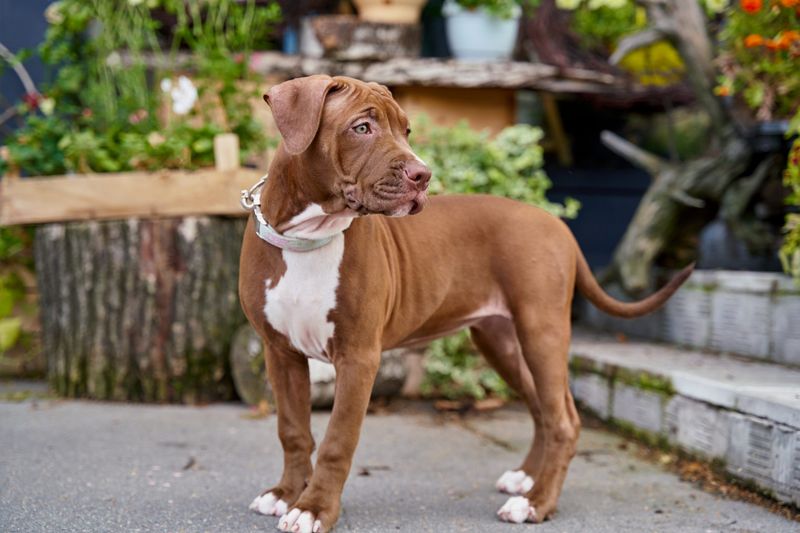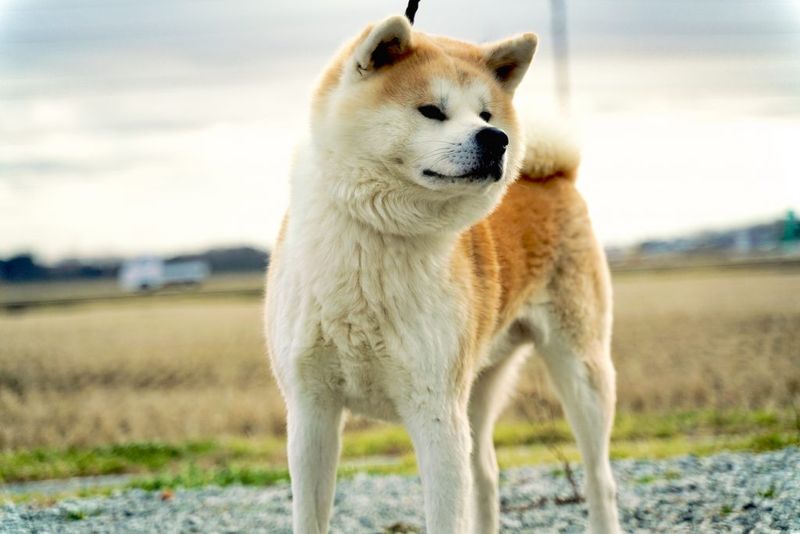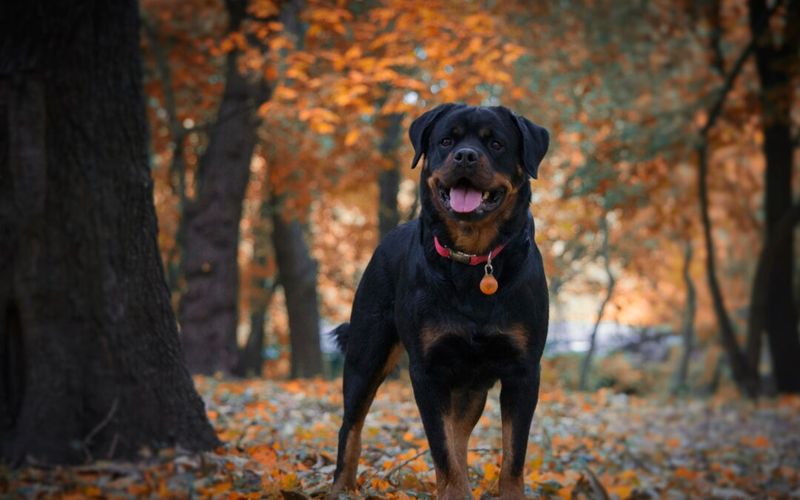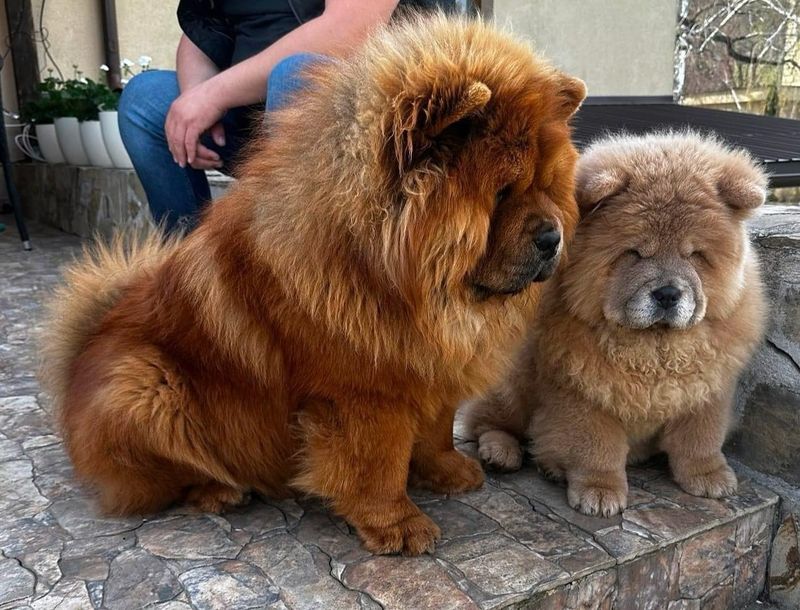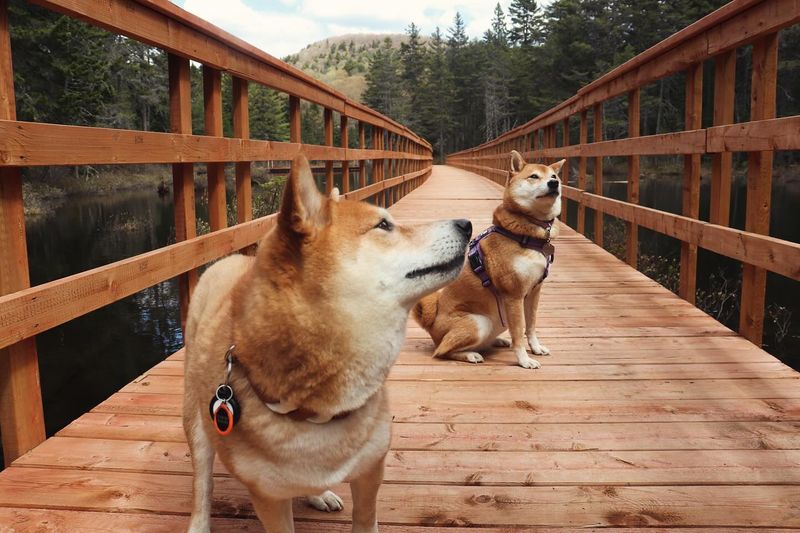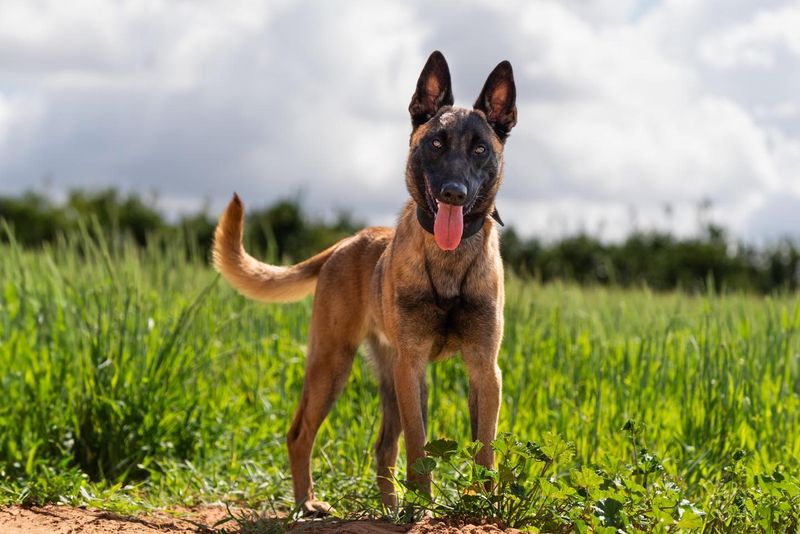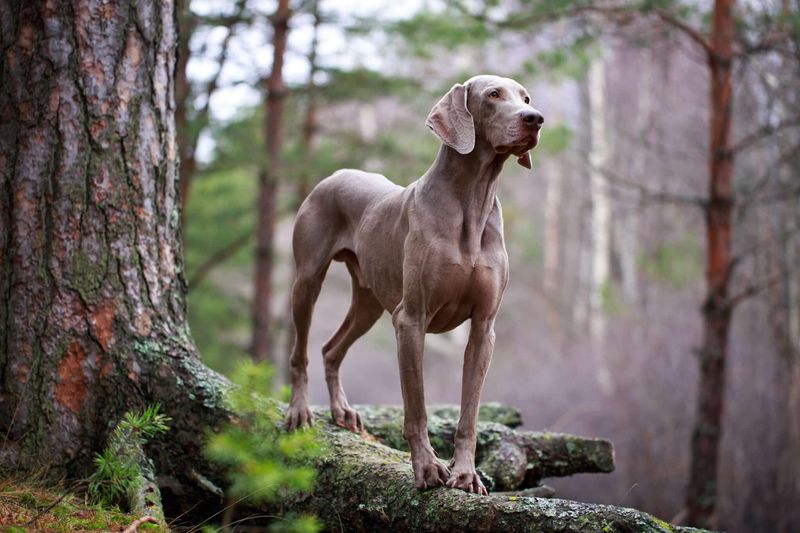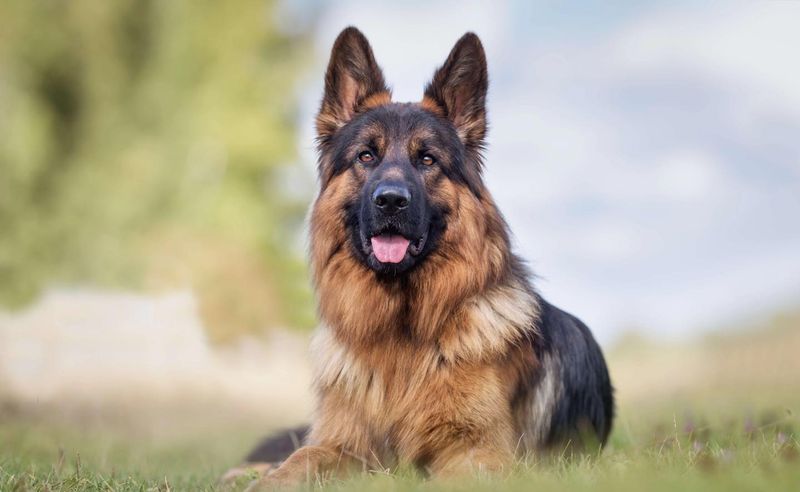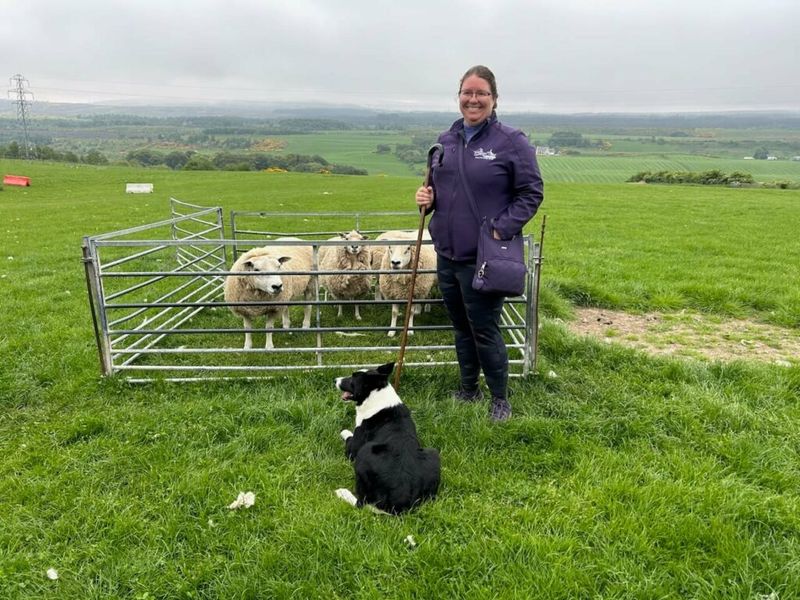Certain dog breeds, due to their history, temperament, or instincts, tend to be less trusting of other animals. These traits often stem from their original roles, whether for guarding, hunting, or herding. This blog explores 13 dog breeds known for their cautious nature around other animals, highlighting their unique characteristics and background stories.
Chihuahua
Tiny but mighty, the Chihuahua often carries a huge personality in its petite frame. Known for being fiercely loyal to their human companions, these little dogs can be skeptical of others.
Their wariness is believed to stem from their history as favored pets of ancient Mexican nobility, where they needed to be alert to protect their owners.
While their size may make them appear fragile, their bold bark tells a different story. Chihuahuas often view larger animals with suspicion, possibly because of their instinctual need to defend their space and people.
Doberman Pinscher
The Doberman Pinscher, with its sleek coat and alert stance, is a breed that commands attention. Originally bred to be a guard dog, their natural instincts include caution around unfamiliar animals.
This breed’s history as protectors means they are always on the lookout for potential threats. Their intelligence and loyalty make them excellent companions, but their trust issues with other animals are deeply ingrained.
Training and socializing from a young age are crucial to helping Dobermans adapt and feel secure in diverse settings.
American Pit Bull Terrier
The American Pit Bull Terrier is often misunderstood due to its muscular build and intense gaze. Historically, they were bred for bull-baiting and as farm dogs, leading to a natural wariness of other animals.
This breed’s protective nature means they are fiercely loyal to their family but cautious of outsiders. Pit Bulls require proper socialization to coexist peacefully with other animals.
Despite their reputation, with the right environment, they can be loving and gentle companions, showcasing their softer side to those they trust.
Jack Russell Terrier
With an energy that matches its inquisitive nature, the Jack Russell Terrier is always on the move. Originally bred for hunting foxes, their instincts make them wary of other animals.
These terriers are quick to spot anything that moves, a trait from their hunting days. Their spirited nature means they need plenty of stimulation to stay happy.
Jack Russells can be taught to get along with others, but patience and consistency are key in managing their natural instincts.
Akita
The Akita, with its noble stance and thick coat, was originally bred for hunting and protection in Japan. They are known for their loyalty and courage, but also their reserved nature around other animals.
This breed’s strong-willed personality means they may view other animals with suspicion. Early socialization helps Akitas become more adaptable and accepting.
Akitas have a strong sense of family, which often extends to their human companions, making them protective and sometimes wary protectors.
Rottweiler
With a history as a herding and guard dog, the Rottweiler is known for its protective instincts. Their muscular build and intense focus make them wary of unfamiliar animals.
The Rottweiler’s loyalty and courage are unmatched, often translating into a watchful demeanor that demands respect. Proper training is essential to manage their inherent wariness.
When well-socialized, Rottweilers can be gentle giants, forming strong bonds with their families while maintaining a respectful distance from unknown creatures.
Chow Chow
The Chow Chow, with its lion-like mane and aloof demeanor, carries an air of mystery. Originally from China, they were used for guarding and hunting, contributing to their cautious nature.
Their independent personality means they are often suspicious of other animals, preferring to observe from a distance. Chows are known for their loyalty, but they require time to warm up to new friends.
With proper socialization, they can learn to coexist, though their dignified nature often means they prefer solitude or the company of their trusted humans.
Shiba Inu
Hailing from Japan, the Shiba Inu is known for its spirited personality and fox-like appearance. Their independent nature and alertness can sometimes make them wary of other animals.
Shibas are known for their loyalty but also their stubborn streak, which means they might not always be welcoming to others. Early socialization is key to helping them adapt.
Their playful yet cautious demeanor often reflects their ancient hunting instincts, making them both intriguing and challenging companions.
Belgian Malinois
The Belgian Malinois is a breed celebrated for its intelligence and versatility, often employed in police and military roles. Their keen instincts and alert nature mean they’re always on guard.
Originally bred for herding, their protective instincts extend to a wariness of other animals. They’re incredibly loyal to their handlers but require guidance to interact with other creatures.
Training plays a crucial role in managing their energy and focus, ensuring that their instinctual suspicions don’t overpower their ability to be social.
Weimaraner
The Weimaraner, known for its striking silver coat, was originally bred for hunting large game. Their keen senses make them naturally cautious around other animals.
This breed’s intelligence and energy demand engagement, and they thrive on having a job to do. Without proper stimulation, their wariness can evolve into restlessness.
With training and socialization, Weimaraners can learn to channel their instincts positively, forming bonds with other animals while maintaining their alert nature.
German Shepherd
The German Shepherd, revered for its intelligence and versatility, often serves in roles requiring vigilance. Their protective nature can lead to a cautious approach towards unfamiliar animals.
Bred as herding and working dogs, they are known for their loyalty and courage. Early training and socialization help in shaping their interactions with others.
When properly guided, German Shepherds can balance their alert instincts with the ability to bond with other creatures, showcasing their adaptability and strength.
Border Collie
Renowned for their intelligence and agility, Border Collies are natural herders. Their instinctual drive to control and manage can lead to wariness around other animals.
These dogs thrive on activity and need mental challenges to keep their instincts in check. Without proper outlets, their alertness can turn into excessive caution.
With the right training, Border Collies can learn to channel their instincts into positive interactions, forming connections with other animals while displaying their remarkable abilities.
Dachshund
Small yet determined, the Dachshund has a history rooted in hunting badgers. This background contributes to a naturally suspicious demeanor towards other animals.
Their curiosity often leads them into mischief, but it also drives their cautious nature around unfamiliar creatures. Dachshunds thrive on companionship but require patience in socialization.
With guidance, they can learn to trust, balancing their instinctual wariness with their desire for adventure and play. Their unique shape and spirited personality make them memorable companions.
